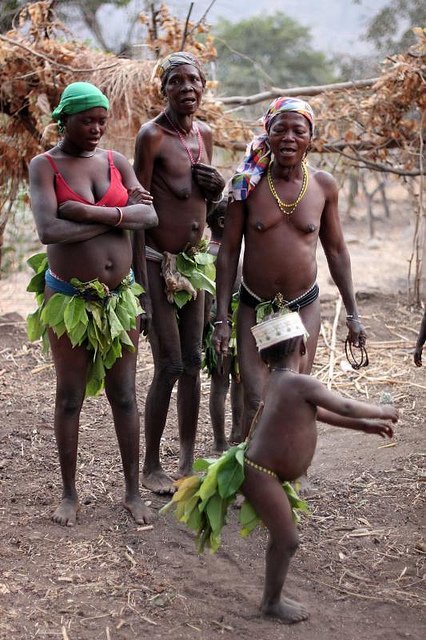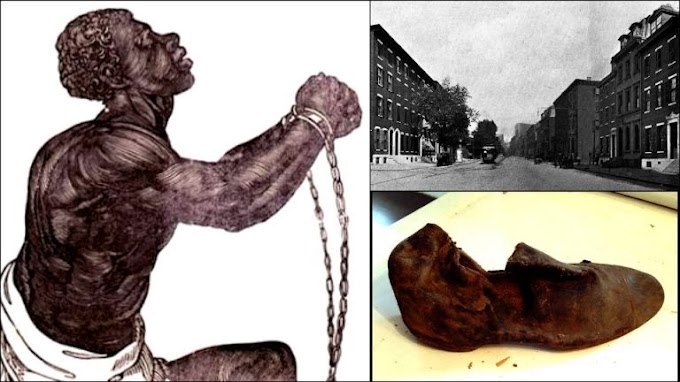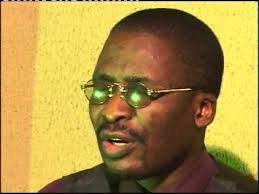Tell us about yourself, education, occupation and your background
My name is Ààrẹ Mustapha Iskil Gbolahan, but many people know me as Arojinle. I am from Adó Odò, Ado-Odo/Ota LG, Ogun State. However, I spent the earlier part of my life in Ayétòrò, Yewa North LG, Ogun State, where I had my primary and secondary schools.
I wear many hats. I’m a content creator, teacher, scientist, animal documentarian, voiceover artist, and broadcast journalist. My work is deeply rooted in research, discoveries, and African philosophy, and I have a passion for storytelling, especially in my native Yoruba language.
I earned a BSc in Biochemistry from the Federal University of Agriculture, Abeokuta, and later pursued an MSc in Membrane Biochemistry and Biotechnology at the University of Ibadan. Interestingly, many assume I studied Yoruba or Zoology because of my expertise in using the Yoruba language to educate people about animals and science.
My journey in broadcasting spans over a decade, and I host Meriiri, a radio show that has become a household name in Southwest Nigeria. Through this platform, I merge traditional radio with modern digital tools, ensuring my audience doesn’t just listen but also sees and understands the topics I discuss. Beyond radio, I have a significant presence online, where I engage with my audience across various platforms, boasting over 1.7 million followers.
At my core, I believe in the power of knowledge, the importance of cultural preservation, and the need to bridge the gap between traditional media and modern technology. My goal is to keep innovating, educating, and inspiring, ensuring that radio and storytelling remain impactful in our ever-evolving world.
Tell us why you believe protecting animals is important?
Protecting animals is crucial for several reasons, and for me, it goes beyond just conservation—it’s about balance, education, and cultural preservation.
First, animals play an essential role in maintaining ecological balance. Every species, no matter how small, has a function in the environment. When we disrupt this balance—whether by hunting animals to extinction, destroying their habitats, or neglecting conservation efforts—we create ripple effects that can harm entire ecosystems and, ultimately, humanity itself.
Second, animals are a vital part of our education and understanding of the natural world. As a scientist and documentarian, I see them as windows into biological processes, adaptation, and survival. Many scientific advancements, including medicine, have been inspired by studying animals. If we fail to protect them, we lose valuable knowledge that could help us in the future.
Culturally, animals hold significant meaning, especially in African traditions. Many Yoruba proverbs, folklore, and spiritual beliefs are rooted in observations of animal behavior. Our ancestors respected animals and understood their importance. Unfortunately, modern society is moving away from this awareness, which is why I take it upon myself to reintroduce this knowledge in a relatable way.
Lastly, protection isn’t just about laws and policies—it’s about education. Many people harm animals out of fear or ignorance. That’s why I dedicate my work to educating people, especially in Yoruba, so they can see the value of these creatures instead of fearing or mistreating them.
For me, protecting animals is about protecting our future, our knowledge, and our identity. When we safeguard them, we preserve the world for generations to come.
What motivated you to create this project?
My motivation for creating wildlife education and preservation content in Yorùbá stems from three key factors: the need for accessible knowledge, cultural preservation, and the power of storytelling in our native language.
Growing up, I realized that most Nigerians, especially in Yoruba-speaking communities, had little understanding of animals beyond myths and superstitions. Many people feared creatures like snakes, bats, and owls, believing them to be symbols of evil, rather than appreciating their ecological roles. I wanted to change that by providing fact-based, scientific explanations in a language people could easily understand and relate to.
Secondly, our generation is losing touch with indigenous knowledge. Our forefathers understood nature, respected animals, and used proverbs and folklore to teach valuable lessons about them. But today, much of that wisdom is either forgotten or dismissed as primitive. I saw an opportunity to bridge the gap between traditional knowledge and modern science, using Yoruba as a medium to make wildlife education engaging and relevant.
Finally, language is powerful. When people hear complex scientific concepts in English, it often feels distant or foreign. But when you explain in Yoruba, using familiar expressions and culturally relevant examples, it resonates deeply. That’s why I chose to present Nigeria’s first-ever fact-based animal documentary in Yoruba—it brings science home to the people.
At the core of this project is my belief that education should not be limited by language. If we truly want to foster a love for nature and wildlife conservation, we must speak in the language of the people. That’s what drives me every day.
What have been your major achievements so far?
Top of my achievements is the numerous people whose minds now appreciate wildlife through my teachings. Besides that, my dedication to content creation, research, and community engagement has earned me several recognitions, including the prestigious Atelewo Special Recognition Award, the Primus Special Recognition Award, and most notably, the honorary title of Ààrẹ Ọmọlúwàbí Oòduà Àgbàyé, conferred on me by the Yoruba Council of Youth Worldwide.
What setbacks have you experienced along the way?
Like any meaningful journey, my path has been filled with challenges. I'll mention just five in this interview
1. Language Barrier in Science Communication
One of the biggest hurdles has been the lack of scientific terminology in Yorùbá. Explaining complex biological concepts in a language that doesn’t have direct translations can be difficult. I often have to create new ways to describe scientific ideas while ensuring they remain accurate and relatable to my audience.
2. Superstition and Cultural Misconceptions
Many people in our society see certain animals as evil or supernatural. Trying to educate people about the importance of animals like owls, bats, and snakes often meets resistance because of deep-rooted myths. Some believe I’m promoting strange ideologies, while others outright reject the information, preferring folklore over science.
3. Limited Support for Indigenous Content
There’s a general lack of funding and institutional support for indigenous-language educational content. Many organizations and media platforms prioritize English-based content, making it harder to secure sponsorships or partnerships that align with my work.
4. Balancing Multiple Roles
Being a radio presenter, researcher, content creator, and voiceover artist means wearing many hats at the same time. Managing all these responsibilities while ensuring consistent, high-quality content can be overwhelming. There have been moments when I felt stretched too thin.
5. Technological and Financial Limitations
Producing high-quality documentaries and digital content requires good equipment, research materials, and funding. Unlike mainstream media houses with big budgets, I often have to be resourceful, using personal funds and limited tools to create content that competes with global standards. Normally, I should be travelling around Nigeria, Africa and the rest of the world to document these animals. For now, I use video clips from other creators to tell my stories. It's not ideal but I have no other way for now.
How can this project benefit Yoruba people?
This project has immense benefits for Yoruba people, touching on education, cultural preservation, economic opportunities, and environmental awareness.
1. Bridging the Knowledge Gap
Many Yoruba people have grown up with misconceptions about wildlife due to superstitions and a lack of access to scientific explanations in their language. By presenting fact-based animal documentaries and educational content in Yoruba, this project makes science more relatable and accessible to everyone, from children to elders.
2. Preserving Yoruba Language and Indigenous Knowledge
As the world becomes more globalized, many indigenous languages are fading. By using Yoruba as a medium for wildlife education, this project helps to preserve and promote the language in a modern context. It also revives traditional knowledge, linking ancestral wisdom with contemporary scientific understanding.
3. Inspiring Future Scientists and Conservationists
Many Yoruba youths grow up believing that science is only meant for English speakers. This project shows that science can be taught in our language, making it easier for young minds to develop an interest in biology, zoology, and environmental science. This could encourage more Yoruba people to pursue careers in wildlife conservation, research, and education.
4. Economic and Tourism Opportunities
When people understand and appreciate wildlife, it boosts eco-tourism. Places like Old Oyo National Park and other wildlife reserves in Yorubaland can benefit from increased local and international visits. Also, more Yoruba people may explore careers in wildlife photography, environmental journalism, and conservation-based businesses.
5. Environmental Protection and Sustainable Living
By educating people about the importance of animals in the ecosystem, this project encourages better environmental practices. People will think twice before killing certain species, destroying habitats, or engaging in harmful practices that threaten biodiversity. This shift in mindset is crucial for long-term sustainability.
6. Cultural and Philosophical Enlightenment
Yoruba culture is deeply connected to nature, but many people have lost touch with these connections. By blending scientific facts with Yoruba proverbs, folklore, and traditional wisdom, this project helps people see the spiritual and philosophical significance of animals in our culture.
7. National and Global Recognition
This project also positions the Yoruba people as pioneers in indigenous-language science communication. It shows that African languages are capable of handling complex subjects, challenging the narrative that knowledge and progress must always be in English.
Ultimately, this project benefits Yoruba people by enriching minds, preserving language, creating opportunities, and promoting a harmonious relationship with nature—all in a way that stays true to our heritage.
What advise do you have for Yoruba people generally?
My advice to Yoruba people is simple but profound: Embrace knowledge, preserve your heritage, and take pride in who you are. Uphold the Ọmọlúàbí ethos, support indigenous innovations, protect our environment and wildlife. Finally, believe in the greatness of the Yorùbá race.
How can the public support this project?
The public can support this project in several meaningful ways. One is by spreading the word and sharing my contents with other Yorùbá people. Another is financial and material support. Sponsorships and donations will help improve production quality, research, and outreach. Finally, people can support by encouraging the use of Yorùbá language and responsible environmental practices.
What is your biggest support system?
My biggest support system is the people—my audience, listeners, followers, and the Yorùbá community at large.
Every time someone watches, listens, shares, or engages with my content, it reinforces the importance of this work. The curiosity of people who ask questions, the excitement of those who learn something new, and the encouragement from those who appreciate the effort—all of these keep me going.
In conclusion, would you love to add anything to this interview?
Yes, I would like to end this interview with a message of hope, responsibility, and unity.
The Yoruba people have a rich heritage, a deep well of wisdom, and a legacy of excellence in every field—be it science, arts, philosophy, or governance. But to sustain and build upon this greatness, we must embrace both knowledge and innovation while staying true to our roots.
Wildlife education, conservation, and Yoruba language preservation are not just about saving animals or speaking a language—they are about protecting our identity, securing our future, and ensuring that generations to come inherit a world that reflects the best of us.
To everyone who has supported this project in any way, I say Ẹ ṣeun mo dúpẹ́ púpọ̀. Your encouragement fuels this journey. Let’s continue to learn, share, and act—because the responsibility of preserving our culture, knowledge, and environment rests on all of us.
How can the public follow your Project (you can add website and social media links and handles)?
My handle on all platforms is @arojinle1. My YouTube channel is www.youtube.com/@arojinle1









0 Comments